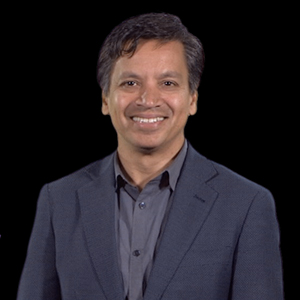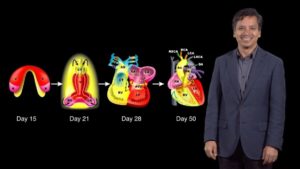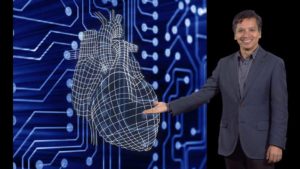Deepak Srivastava is the President of Gladstone Institutes and a Senior Investigator and Director of the Gladstone Institute of Cardiovascular Disease and the Roddenberry Center for Stem Cell Biology and Medicine at Gladstone. He is also a Professor of Pediatrics and of Biochemistry and Biophysics at the University of California, San Francisco.
Srivastava’s lab investigates the molecular events that instruct cardiac progenitor cells to differentiate into a functioning heart during embryogenesis. Using their knowledge of cardiac development, Srivastava’s lab has reprogrammed non-muscle cells to function as heart muscle cells in the mouse allowing for repair of damaged heart tissue. This technique may allow for repair of human cardiac tissue following a heart attack.
Learn more about Dr. Srivastava’s research






